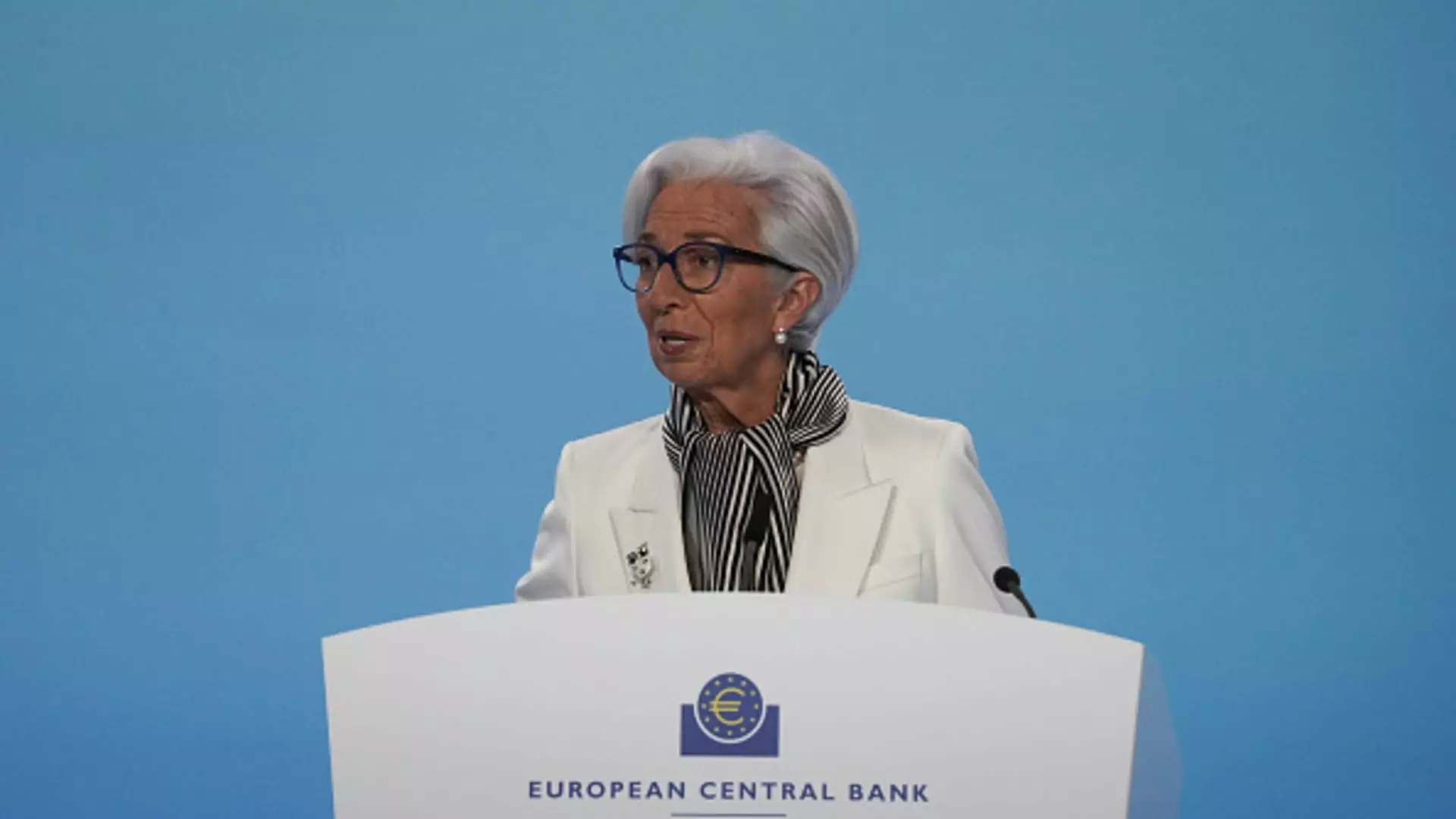The European Central Bank recently made the decision to lower its annual inflation forecast while keeping interest rates at a stable level. ECB President Christine Lagarde mentioned that the market pricing for a potential rate cut in June appears to be aligning with the policymakers’ outlook. The staff projections for inflation in 2024 have been revised down to an average of 2.3% from the previous estimate of 2.7%.
Looking ahead, the staff at the ECB anticipate inflation to reach the bank’s 2% target by the year 2025 and then decrease further to 1.9% in 2026. Furthermore, the economic growth forecast for 2024 has been adjusted to 0.6% from 0.8%, indicating that the euro zone’s economic activity is gradually moving away from stagnation. The projections also point towards GDP expansion of 1.5% in 2025 and 1.6% in 2026, which is marginally lower than what was predicted in December.
During a press conference, Lagarde expressed the ECB’s confidence in the ongoing disinflationary process and the progress they have been making. However, she emphasized the need for more evidence and data before reaching a definitive conclusion. She highlighted the importance of upcoming months, particularly April and June, for acquiring this essential information.
The recent announcement by the ECB has caused an increase in market speculations regarding potential rate cuts later in the year. As a result, the euro weakened against the British pound, and bond yields experienced a decline. With market expectations already leaning towards a rate cut in June, policymakers are closely monitoring indicators such as wage growth and profit margins for any surprises in inflation.
Antonio Serpico, a senior portfolio manager at Neuberger Berman, suggested that the most probable scenario involves gradual rate cuts starting in June with a reduction of 25 basis points per meeting. This could potentially accumulate to a total of 150 basis points or more. Although there were no rate cuts announced at the recent meeting, Serpico noted that the decision appeared relatively dovish, considering the downward revisions in both growth and inflation forecasts.
One of the key variables that will influence future policy decisions is the persistence of core inflation, mainly driven by the tight job market. The updated projections for core inflation indicate a decrease to 2.6% in 2024 from the previous estimate of 2.7%, and a further decline to 2.1% in 2025 from 2.3%. These figures suggest a challenging environment for achieving the desired inflation targets in the coming years, requiring careful monitoring and strategic interventions by the ECB.


Leave a Reply